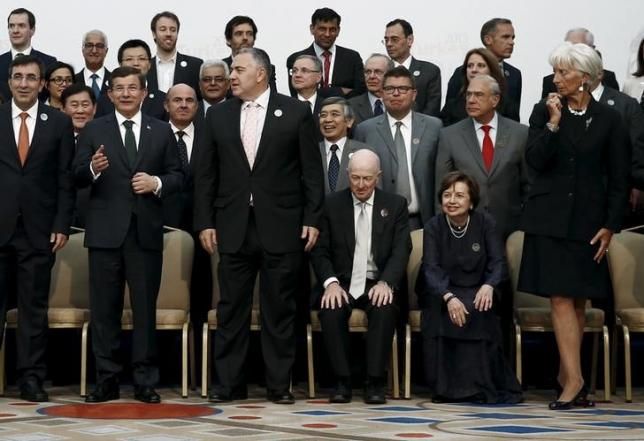Market-determined rates often lead to exchange rate misalignments, notes A V Rajwade.
 The communique issued at the end of the Group of Twenty (G-20) meeting of finance ministers and central bank governors in Istanbul earlier this month reiterated the "commitment to move towards more market-determined exchange rate systems and exchange rate flexibility to reflect underlying fundamentals, and avoid persistent exchange rate misalignments".
The communique issued at the end of the Group of Twenty (G-20) meeting of finance ministers and central bank governors in Istanbul earlier this month reiterated the "commitment to move towards more market-determined exchange rate systems and exchange rate flexibility to reflect underlying fundamentals, and avoid persistent exchange rate misalignments".
That China, India and some other G-20 countries, which intervene regularly in the exchange market, signed this without batting an eyelid is an indicator of how seriously the G-20 members take such commitments: to be sure, the G-20 has made such commitments several times in the past, also at the Summit level.
Separately, India's finance minister has emphasised that "it is the real economy that is going to matter.
That is what will dictate both the currency valuation and the stock market itself".
He also said, "I have always gone in for a relatively more rational middle path, which is the currency must find its own value" (CNBC interview reported in Mint, September 1)
One wonders whether he seriously believes in the rational expectations of investors and the efficient market hypothesis that market prices reflect all known fundamentals.
Again, in today's world, it is not so much the tradeables sector of the real economy that determines exchange rates as portfolio capital flows: China's devaluation last month, as also the fluctuation of the rupee, and the much larger drops in many other emerging economy currencies were the result of capital flows (or expectations about them) and not changes in the real economy.
The reality is that 'market-determined exchange rates' - the objective of the G-20 - often lead to 'persistent exchange rate misalignments', which the G-20 wants to avoid.
To quote from a May 2011 BIS working paper by Claudio Borio and Piti Disyatat on global imbalances: "The exchange rate is such an important relative price that it can raise dilemmas for the pursuit of domestic monetary policy objectives.
Large shifts of asset allocations across currencies, possibly associated with large gross capital flows across jurisdictions, can induce large shifts in exchange rates...
Gradual appreciations can induce further portfolio shifts and capital inflows by reinforcing expectations of capital gains and providing incentives to maintain or add to given foreign currency positions.
And the necessary appreciation to generate expectations of a future depreciation may be too large for a country to bear, owing to the costs in terms of competitiveness and distortions in production and expenditure patterns that it can generate."
Vivek Dehejia of Carleton University has quoted economist Judy Shelton arguing in a conference that "it is surely not a coincidence that the era of fixed exchange rates under Bretton Woods represented a period of rapid growth, low and stable inflation, and falling income inequality in advanced economies, whereas the period since then has witnessed considerably greater economic instability and rising inequality".
Market-determined, flexible exchange rates benefit the financial economy and the better off at the cost of the real economy and growth.
Another perspective on the financial and real economies is that while central banks rush to rescue the former (remember the famous 'Greenspan Put'?), they are too often not very keen to help the latter in supporting "growth and job creation" - another commitment of the G-20 - except as a corollary to rescuing the former.
This leads me to a related issue: In a recent 'Project Syndicate' article, Prof Barry Eichengreen advised the Chinese authorities to "start developing stable and liquid financial markets that are not subject to official manipulation". For one, liquid markets are rarely stable.
For another, they often lead to prices diverging significantly from fundamentals.
As Paul Davidson argues in Financial Markets, Money and the Real World: "Financial markets can never deliver, in either the short or long run, the efficiency promised of efficient market theory.
In the real world, efficient markets are not liquid and liquid markets are not efficient."
Another issue is whether central bank intervention in the exchange market is synonymous with manipulation.
After all, every central bank intervenes in the money market to influence, indeed determine, the time value (that is interest rates) of the domestic currency, to influence prices in the real economy (that is inflation), ostensibly in the interest of growth and employment.
Surely the external value of the domestic currency is equally important for the same objective?
And, is managing the exchange rate synonymous with manipulating it? More on this in a later article.
Image: A group of world leaders at the G20 Summit held in Istanbul in September 2015; Photograph: Reuters
The author is chairman, A V Rajwade & Co Pvt Ltd








 © 2025
© 2025